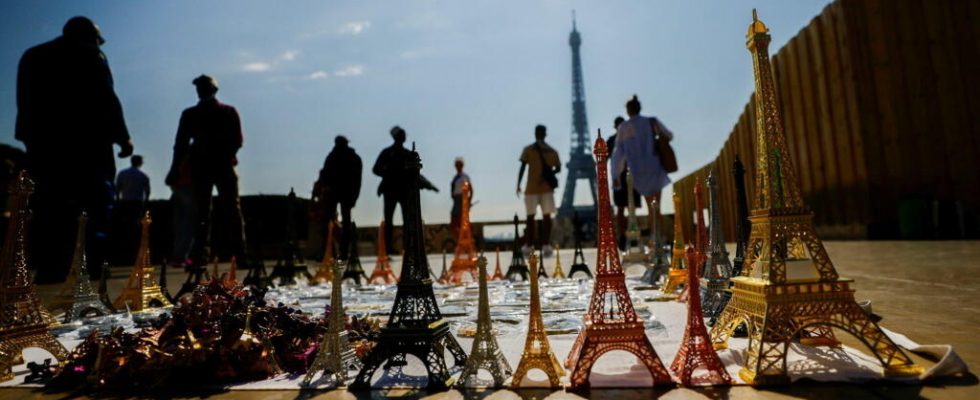The little thieves at Trocadéro were well exploited by adults. The Paris criminal court confirmed it, after four days of hearing this Friday. Six Algerians were sentenced to sentences of up to six years in prison and permanent bans from the country, for having deliberately drugged and pushed unaccompanied Moroccan minors to rob tourists at the foot of the Eiffel Tower in Paris. Twelve of these minors filed a civil suit.
3 mins
For the president, if human trafficking is characterized, it is because the six Algerians exploited the “ physical, psychological, social and emotional vulnerability of these minors “. Children or just teenagers, lost after a traumatic migratory journey. This was described several times during this trial: a young person who clings under the belly of a truck, another who is locked in a box, a last who risks drowning. The president of the court had already described them as “ miraculous » even before their arrival in Paris.
On the Trocadéro esplanade, these young people come across Arabic speakers who quickly become landmarks, a sort of father figure. They offer them a little money, precarious housing and above all medicine, supposed to relieve their suffering. The trap closes. Addiction pushes them to steal, to obtain psychotropic drugs, but also to respond to the orders of threatening and violent adults.
Lyrica and Rivotril tablets, two anti-epileptic drugs, are for the court “ the raw material that will allow the exploitation of unaccompanied minors “. The president describes a modus operandi reducing them, “ as tools “. She also emphasizes that the defendants will not have shown any empathy towards them.
By its conviction, the court recognizes the extreme seriousness of the facts, particularly in view of the damage caused to the physical and psychological integrity of the young people. Their lawyers all spoke of their state of physical disrepair during the first meetings, the difficulty in weaning themselves off drugs and the effects of psychotropic drugs on the development of their immature brains. Their administrator ad hoctheir guardian during the procedure, had even raised the question of the recognition, henceforth, of their status as a disabled person.
A ” historic decision »
One of the lawyers for the civil parties welcomed a “ historic and exemplary decision » and the consecration of the victim status of these minors long perceived as dangerous delinquents and troublemakers. Another lawyer recalls that this trial only highlights a tiny part of the problem. ” VSHuman trafficking networks still proliferateexplains Maître Debarre, including against Moroccan and Algerian minors. »
Defense lawyers preferred not to comment on this judgment. During their pleadings, they tried to juxtapose the misery of the adults being tried and that of the child victims; traumatic migratory journeys, a situation of great wandering in France, daily survival… This great precariousness would have dictated their choice, according to them. Trafficking, theft, even violence, but in no case the exploitation of minors. All defendants denied drugging and exploiting the children. Some admitted at most to having sold them medicines or simply to having encountered them on the Trocadéro esplanade, their “ common workplace “.
These arguments were swept aside by the prosecutor on Thursday. For her, the defendants consciously caused an addiction in young Moroccans, gave them instructions to commit theft and benefited from these thefts. The court followed its requisitions.
